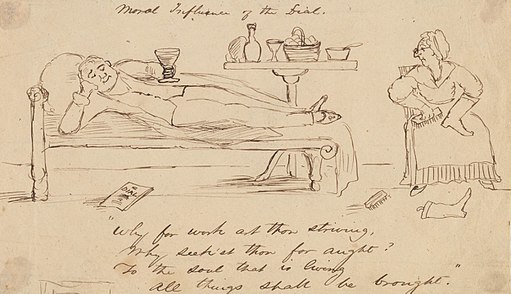Idea-forging clubs of history#
Last tended 2025-08-29
Here is a list of clubs that have caught my attention while consuming history and biography over the years. Some of them have ceased, while others live on. Not all were formally-instated clubs but fit my loose criteria. All are ones whose sessions I would love to have witnessed. I treasure the lot of them for the inspiration, insights, and innovations they fostered. I'll be vigilant to find more listworthy instances and promptly add them.
Olympia Academy
An ad-hoc, idea-discussion group borne of Albert Einstein's wish to present and explore ideas and theories (including special relativity). The core trio was Conrad Habicht, Maurice Solovine, and Einstein when all were living in Bern, Switzerland. Wikipedia Article
Suicide Squad
--see photo of the core group at the top of this blog--
A semi-DIY group of rocket propulsion experimenters banded around Caltech grad student, Frank Malina. Possible hazardous experiment incidents on campus lead to the "suicide squad" label, and to Mailina's grad advisor, famed Caltech aerodynamicist Theodore von Kármán, counselling them to find an isolated test location away from campus. They did: they picked a location in the Arroyo Seco canyon very close to what eventually became NASA Jet Propulsion Labs (JPL), whose inception has direct lineage from the "suicide squad's" first Army Air Corps backed project. Smithsonian Magazine Article
London literary world Friday lunch club (no official name adopted)
A group of talented friends who lunched to share and dissect ideas and brandish wits over a long lunch. Regular attendees included Kingsley Amis, Christopher Hitchens, James Fenton, Ian McEwan, Julian Barnes, and Clive James. Hitchens notes that Salman Rushdie also occasionally attended. Some sources indicate lunch was at a place named Mother Bunch’s for a time and then switched to the Bursa Kebab House. Hitchens shares memories illustrating this group's literary prowess and humor (from sublime to lewd) in Hitch 22.
Tech Model Railroad Club (TMRC) at MIT
MIT student club formed in 1946, initially to specialize in model railroad layouts that employed complex, automated operation that club members themselves developed and evolved as electronic control and computing options emerged. The club continually attracted those who "shared a passion to find out how things worked and then to master them." The club has been a wellspring of tech innovation and is often regarded as the birthplace of the hacker culture. Wikipedia Article
The Other Club
A British political dining society founded in 1911 by Winston Churchill and F. E. Smith. The club had twelve rules written mostly by F. E. Smith. The rules are said to have been read aloud as each dinner commenced. Rule 12 is: "Nothing in the rules or intercourse of the Club shall interfere with the rancour or asperity of party politics." Wikipedia Article
Homebrew Computer Club
An informal group of electronic enthusiasts and technically-minded hobbyists who gathered to trade parts, circuits, and information about DIY construction of personal computing devices. The group met from March 1975 to December 1986 in Menlo Park. The club was a crucible for a number of the innovations that drove the emergence of Silicon Valley. You might recognize the names of several members (understatement intended). Wikipedia Article
The Inklings
An informal literary discussion group at the University of Oxford. Existed for nearly two decades between the early 1930s and late 1949. J. R. R. Tolkien and C. S. Lewis were members. Here you might have heard Tolkien read draft passages of The Lord of the Rings. Wikipedia Article
Cambridge Apostles
Secret, inductees-only discussion group at Cambridge welcoming a wide expanse of subject matter focus. In its weekly meetings, one member gave a prepared discourse on a topic, which was later thrown open for discussion. The documents were saved throughout the years and stored in a cedar chest dubbed "the Ark". Given access to the Ark you would find treatises by members including Alfred Tennyson, G. H. Hardy, Bertrand Russell, and John Maynard Keynes. Wikipedia Article
The Transcendental Club
Early 19th century New England group of idealist thinkers who championed free conscience and the value of intellectual reason. Some say Amos Bronson Alcott's definition of transcendental captures the core view of club: "transcendental means that there is more in the mind than enters it through the senses". Others might say Emerson's Self Reliance essay captures the club's spirit. The club eventually begat a journal, The Dial, for writings that would express their ideals. Ralph Waldo Emerson, William Henry Channing, Amos Bronson Alcott, and Henry David Thoreau were among the club's luminaries. Wikipedia Article
The Analytical Society
The society was a student-formed group at Cambridge commenced about 1810 by the plucky Charles Babbage (of Difference Engine and Analytical Engine fame). The club's one purpose was to drive a change to the use of Leibnizian notation for differentiation in calculus -- often called the continental methods -- rather than the thoroughly entrenched Newton notation for differentiation. (Here as in other related realms, Newton cast a long shadow.) The club ceased as the members graduated out, but it had planted the seed, and some of the former members can be credited for the wide acceptance of Leibniz notation throughout Great Britain by 1830. Wikipedia Article
Junto, or Leather Apron Club
The 1727 brainchild of networker-ahead-of-his-time Benjamin Franklin as he was establishing himself in Philadelphia. It would be fair to describe the original group as comprised of craft and tradesmen who shared Franklin's penchant for inquiry and self improvement. This group met on Fridays at a pub or house using a meeting structure conceived by Franklin:
"The rules that I drew up required that every member, in his turn, should produce one or more queries on any point of Morals, Politics, or Natural Philosophy, to be discuss'd by the company; and once in three months produce and read an essay of his own writing, on any subject he pleased."
Wikipedia Article
Leave a comment
Submissions are subject to review and approval
 Kurt Abbott Bestul
Kurt Abbott Bestul

